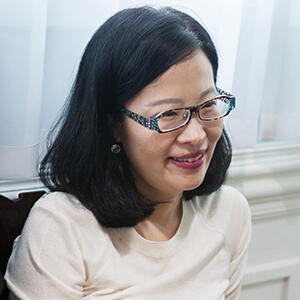Climate Change: Challenges and Responses in Korea
Climate Change: Challenges and Responses in Korea
Tuesday, October 5, 20214:00 PM - 5:15 PM (Pacific)
Via Zoom. Register at https://bit.ly/3lt42Rh
To watch the recording of the event, click here.
October 5, 4:00pm-5:15pm California time/ October 6, 8:00am-9:15am Korea time
This event is made possible by generous support from the Korea Foundation and other friends of the Korea Program.
This event is part of Shorenstein APARC's fall 2021 webinar series Perfect Storm: Climate Change in Asia.
In this webinar, a panel of climate change experts will discuss the challenges facing Korea and the country's mitigation efforts and policy responses.
Presenters:

Young Sook Yoo, former Minister of Environment in Korea
Dr. Yoo is currently board chair of Climate Change Center in Korea; an honorary research scientist at Korea Institute of Advanced Science and Technology; President of Korean Biofuel Forum; a member of the Korean Academy of Environment Science and National Academy of Engineering of Korea. She holds a PhD in biochemistry and biophysics from Oregon State University, and trained as a postdoctoral fellow at Stanford's School of Medicine.

Suh-Yong Chung, Professor of International Studies at Korea University
Professor Chung is also director of Center for Global Climate and Marine Governance at Korea University; director of Center for Sustainable Development Law and Policy; a member of policy Advisory Board of Korea Forest Service; and the director of Center for UN Studies of UNA-Korea. He holds degrees in law and international relations from Seoul National University, London School of Economics and Stanford Law School.
Discussant:

So-Min Cheong, Associate Professor of Geography & Atmospheric Science, University of Kansas
Professor Cheong's current research focuses on climate change adaptation and disaster management including oil spills, floods, extreme heats, and wildfires. She is a lead author of multiple IPCC (Intergovernmental Panel on Climate Change) reports including the Sixth Assessment Report. She received her PhD in geography, MAs in marine affairs and international studies from University of Washington.
